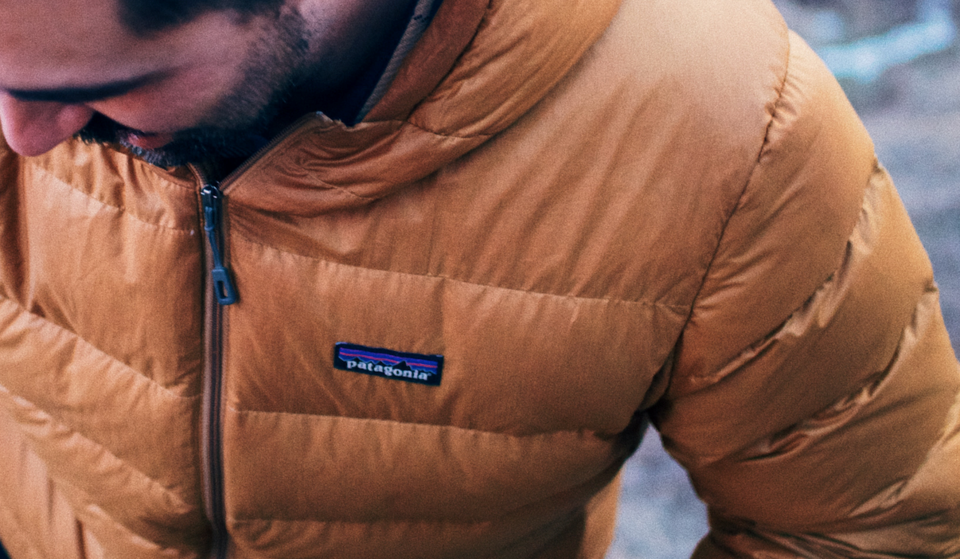Patagonia made headlines last week when the outdoor apparel brand’s billionaire founder Yvon Chouinard announced his decision to, as the New York Times and Washington Post phrased it, give the company away.
More specifically, Chouinard has transferred his ownership of the company, valued at about $3 billion, to a new, specially designed trust and non-profit organization. The move ensures the approximately $100 million in annual profits Patagonia earns from approximately $1 billion in annual sales will now be used to fund environmental initiatives—not build familial wealth—while keeping Patagonia an independent, for-profit entity.
The 83-year-old climber and business owner (who, fun fact, was born in Maine to a French-Canadian father before the family packed up and moved to Southern California) shared the news with staff and customers in a letter posted to Patagonia’s website on Wednesday, Sept. 14.
“Earth is now our only shareholder,” the letter read, in part. “We’ve always been dead serious about saving our home planet—and now we’re putting the entire business where our mouth is.”
Chouinard went on to say he had considered selling the company and donating the money—“But we couldn’t be sure a new owner would maintain our values or keep our team of people around the world employed,” he explained—or taking the company public. “What a disaster that would have been,” Chouinard wrote.
“Even public companies with good intentions are under too much pressure to create short-term gain at the expense of long-term vitality and responsibility,” he continued. “Truth be told, there were no good options available. So, we created our own.”
Now, 98 per cent of Patagonia shares belong to Holdfast Collective, a newly formed non-profit that will direct the company’s profits to protecting the environment. The remaining two per cent of total shares, representing the family’s voting stock, were permanently transferred to a new Patagonia Purpose Trust last month. The Chouinards will continue to guide the company through family members’ seats on the Trust’s board of directors.
Some of the headlines that followed the announcement? “Patagonia founder to give apparel company to trust, direct profits toward climate crisis,” from CBC News. “Yvon Chouinard—the ‘existential dirtbag’ who founded and gifted Patagonia,” from The Guardian. The decision was also heavily lauded by social media users—at least a decent amount of the ones on my feed.
But this isn’t the first time Patagonia and its founder have sacrificed profits in favour of more noble objectives, from promising one per cent of annual profits to environmental initiatives to prioritizing employee well-being through flexible work policies and on-site child care, to its Worn Wear program, which sells used Patagonia items and offers customers credits for sending in worn gear. The company has previously used ads to urge consumers to buy less.
It’s also not entirely surprising, given the fact that Chouinard never fit the billionaire stereotype. As he told the NYT, “I was in Forbes magazine listed as a billionaire, which really, really pissed me off. I don’t have $1bn in the bank. I don’t drive Lexuses.” According to the outlet, he “drives a beat-up Subaru and splits his time between two modest homes”—one in Jackson, Wyo. and the other near Patagonia’s headquarters in Ventura, Calif.—and doesn’t even own a cellphone or computer.
In Chouinard’s words, “I didn’t want to be a businessman. Now I could die tomorrow and the company is going to continue doing the right thing for the next 50 years, and I don’t have to be around.”
Public reaction wasn’t all positive. Some accused Chouinard of virtue signalling, others deemed the move as “a rich dude trying to assuage his guilt of being a capitalist.” Others criticized the company for its higher-end price point (ignoring the fact that it generally costs more to create durable garments using more sustainable practices). Others argued whether Patagonia has ever even lived up to its promise of sustainably-made garments in the first place.
Another headline, this one from financial outlet Bloomberg, read: “Patagonia Founder Avoids $700 Million Tax Hit By Donating Company.” The ownership transfer was structured in a way that retains family control while avoiding taxes, Bloomberg added in its subhead.
Though leaving the company to his two adult children or selling would have cost the founder significantly more in estate and gift or capital gains taxes, the Chouinard family isn’t making any money from the transfer, and Bloomberg admits Chouinard “owes $17.5 million in gift taxes for the shares he transferred to the trust.” According to one financial expert the NYT spoke with, “There was a meaningful cost to them doing it, but it was a cost they were willing to bear to ensure that this company stays true to their principles … There is no tax benefit here whatsoever.”
There’s long been a debate about whether such a thing as an unselfish act exists. No individual or company is perfect, including Patagonia, but considering the severe challenges posed by climate change, the company's (now former?) billionaire founder is doing far more than most.
Chouinard said he hopes his decision influences “a new form of capitalism that doesn’t end up with a few rich people and a bunch of poor people.” I think it sets a radical example to others that just because something’s usually done one way, doesn’t mean that has to be the only way. The world would benefit from more people heading up companies who aren’t motivated to grow their bank accounts, but to grow their positive impact—while making some pretty sweet products at the same time.




